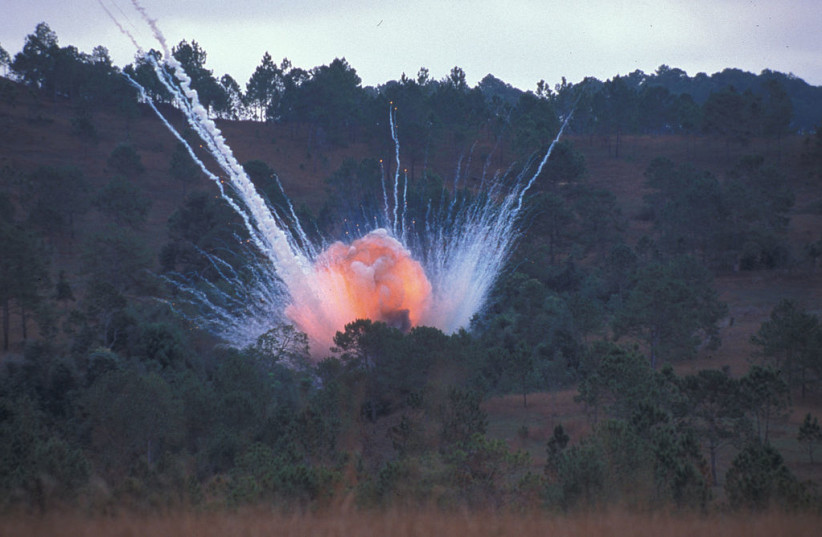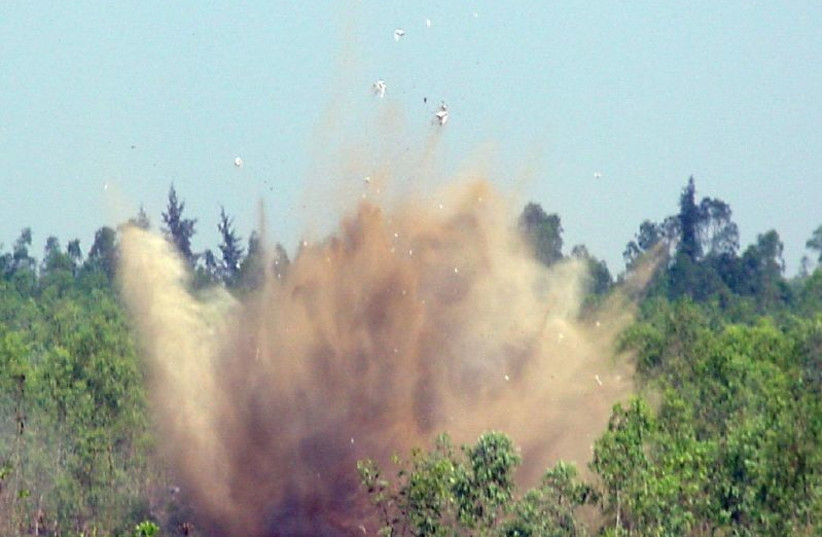Russian troops have been laying landmines throughout regions in eastern Ukraine under their control, including roads, forests and even cemeteries, the Ukrainian Intelligence Directorate (GUR) claimed Tuesday.
A recent incident took place on Monday night along the Kherson-Snihurivka highway where a significant stretch of road had landmines planted.
Further, the Velykyi Burluk Raion (which borders Russia) in the Kharkiv Oblast has been completely cut off from the rest of Kharkiv. Only a single road is available for residents to use, and that road goes into Russia. All other roads, even dirt roads, have been mined in order to block Ukrainian forces, according to the GUR.
Russian troops also mined the inside of a hospital in the Polohy Raion of the Zaporizhzhia Oblast. Previously, the hospital was used by staff and patients, but Russian troops removed all patients, except for wounded Russian soldiers on the ground floor, and removed all staff and banned them from returning to work. According to the GUR, should the staff return to the hospital, they would be shot on the spot.
In the town of Fedorivka in the Polohy Raion, everything from roads, fields and cemeteries were mined.

Previous landmine reports
Ukraine has been raising the alarm about Russian mines for quite some time into this invasion.
Even before the invasion began, Russia reportedly planted mines in a number of social infrastructure facilities in separatist-controlled Donetsk.
"These measures are aimed at destabilizing the situation in the temporarily occupied territories of our state and creating grounds for accusing Ukraine of terrorist acts," the Defence Intelligence of Ukraine said in its official Twitter account at the time.
"The Defence Intelligence of the State Security Service of Ukraine urges Donetsk residents not to leave their homes and not to use public transport," it tweeted.
As the war continues, more reports of Russian mine planting have surfaced.
According to allegations made in late March, humanitarian NGO Human Rights Watch accused Russia of using banned antipersonnel mines – which can indiscriminately kill and injure people within a 16-meter radius – in the Kharkiv Oblast.

“Countries around the world should forcefully condemn Russia’s use of banned antipersonnel landmines in Ukraine,” said Steve Goose, the arms director of Human Rights Watch. “These weapons do not differentiate between combatants and civilians and leave a deadly legacy for years to come.”
These mines were banned in the 1997 Mine Ban Treaty, also known as the Ottowa Treaty. While Russia has not signed it, Ukraine has.
Earlier this month, on International Day for Mine Awareness and Assistance in Mine Action, Colombian Ambassador to the UN in Geneva Alicia Arango Olmos, who is also the current president of the Anti-Personnel Mine Ban Convention, further condemned Russia for using mines and urged them to stop, according to the Associated Press.
“Anti-personnel mines only cause victims, they don’t resolve any type of problem,” she said, AP reported.
“So please, Russians, please stop using it, because many of the people that are victims of land mines have nothing to do with what’s happening between Ukraine and Russia.”
Naval mines
Russia has also been accused by Ukraine of placing naval mines in the Black Sea.
This accusation is supported by Turkey's reports of finding naval mines in the Black Sea drifting near the Turkish coast. Russia has in turn blame the planting of the naval mines on Ukraine.
Reuters contributed to this report
